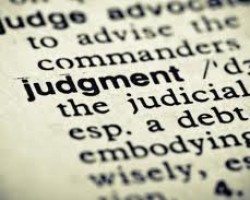
Forbes-
Assume that you own a piece of property, and there is a mortgage against that property. Let’s further assume that the amount remaining on the mortgage exceeds the fair market value of the property — what is commonly known as a property “under water”.
Now let’s say that you either cannot or don’t want to pay the mortgage. Maybe you’ve lost your job. Or maybe the value of the property has sunk so low that you doubt that it will come back to the value of the mortgage within your lifetime. In either case, you are either evicted from the property or you voluntarily abandoned it, what is known as “walking away”.
The amount of money that the lender lost on the deal, i.e., the difference between what the outstanding balance of the mortgage and what the foreclosure sale brought, is known in legal parlance as the “deficiency”, i.e., the sale was “deficient” in making the lender whole. A judgment based on the deficiency is known as a “deficiency judgment”, and can include not just the difference in the mortgage and ultimate sale price, but also the costs of the sale, and the attorney’s fees for the foreclosure. In some states, the bank can also tack on interest and penalties.
Here is the question: If the lender forecloses on the property, can the bank then sue you for the deficiency and obtain a deficiency judgment? …
[FORBES]
© 2010-19 FORECLOSURE FRAUD | by DinSFLA. All rights reserved.


